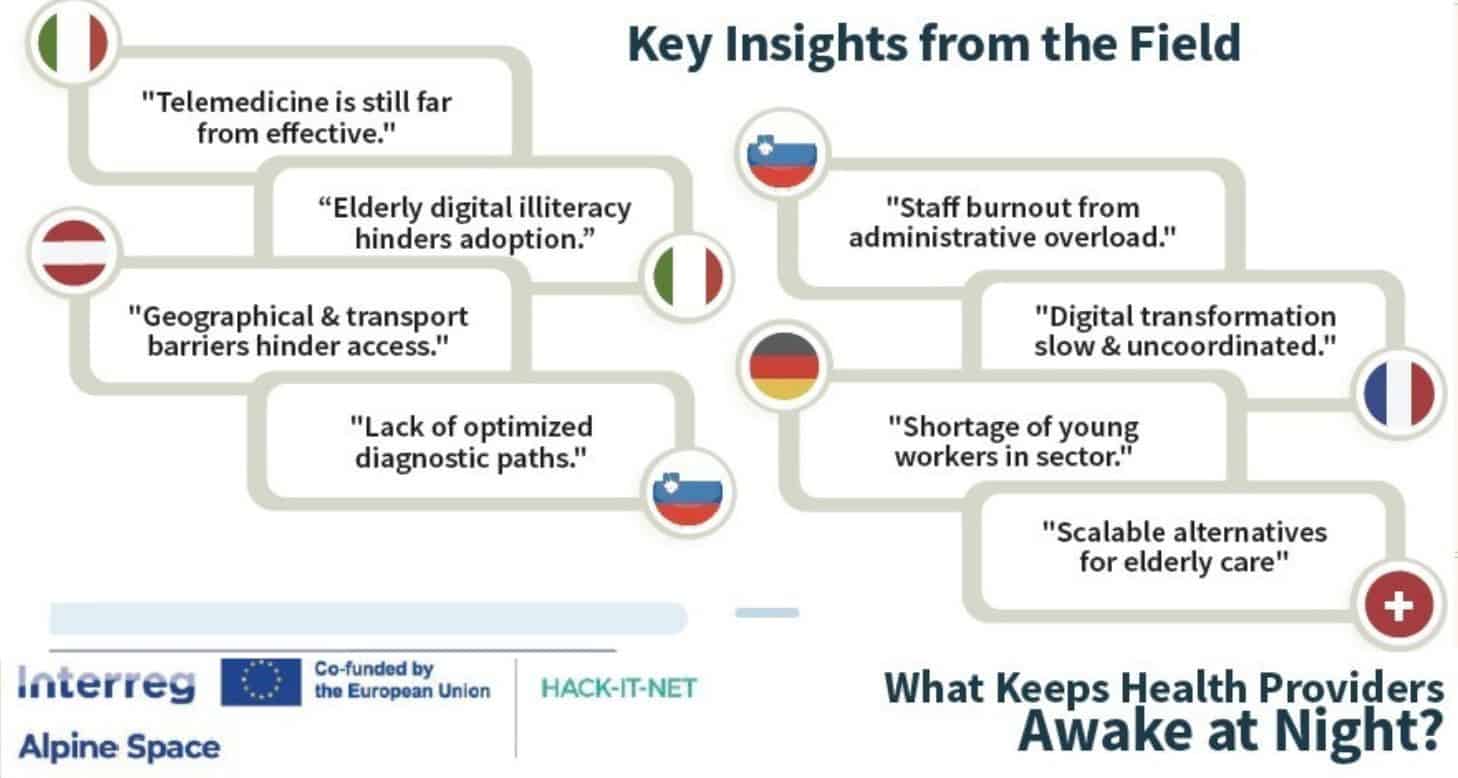As healthcare systems across the Alpine Space face increasing pressure, the HACK-IT-NET project has taken a decisive step to listen to those at the frontlines of care. Through 101 structured interviews with healthcare professionals, administrators, policymakers, and patient organizations in Italy, Austria, Slovenia, France, Germany, and Switzerland, the project has gathered critical qualitative insights—now visualized in a newly released infographic.
This transnational mapping exercise offers a rare, comparative view of the real-world challenges and aspirations of those who live and work within Alpine healthcare systems every day.
Health systems under strain
The interviews reveal a system under increasing pressure, with five main structural weaknesses standing out:
- 46% of respondents identified staff shortages as the most urgent issue, especially in rural and remote areas.
- 43% raised concerns about the aging population, both among patients and healthcare workers nearing retirement.
- 41% flagged long waiting lists and service inefficiencies, due in part to administrative bottlenecks.
- 29% emphasized the difficulties of implementing a digital and green transition, citing lack of infrastructure, training, and alignment.
- 26% pointed to territorial fragmentation, which limits access to care and innovation spread.
“Hospitals need to become more sustainable”
“AI is a big challenge for both staff and patients.”
“We lack interregional cooperation in digital tools.”
“Many elderly patients struggle to use digital platforms.”
Digital tools: high expectations, low readiness
Despite the push for digitalization, many systems are not ready. The infographic highlights major gaps between available technologies and actual readiness:
- Digital tools remain underused due to uneven adoption and lack of interoperability.
- Staff preparedness is low—many professionals report needing more digital skills training.
- Cybersecurity protocols are inconsistently applied, raising concerns in a highly sensitive sector.
- Patients, especially elderly users, often lack the digital literacy needed to access e-health services.
Greener healthcare: a missed opportunity
Environmental sustainability is broadly recognized as a priority, yet few health systems have incorporated green goals into strategy or budget planning. The green transition is still marginal in health infrastructure, energy use, procurement, and care models. Several interviewees noted the lack of leadership and coordination on sustainability in healthcare.
From insight to action: what should change?
The voices collected through HACK-IT-NET show a shared desire for transformation—rooted in local realities but demanding cross-border solutions. The infographic concludes with key areas of change:
- Participatory and personalized care – Systems must be built around people, not processes.
- Integrated and smarter systems – Digital tools must support care delivery, not add complexity.
- Better education and prevention – Healthcare must start well before illness does.
- Supportive digital tools – Technologies must be user-centered and equitably accessible.
- Greener healthcare facilities – Climate-resilient hospitals are a necessity.


